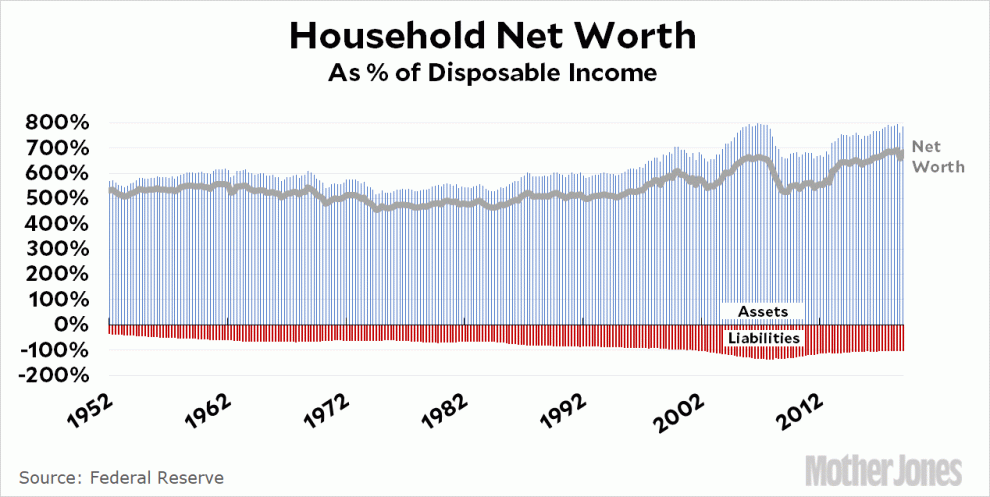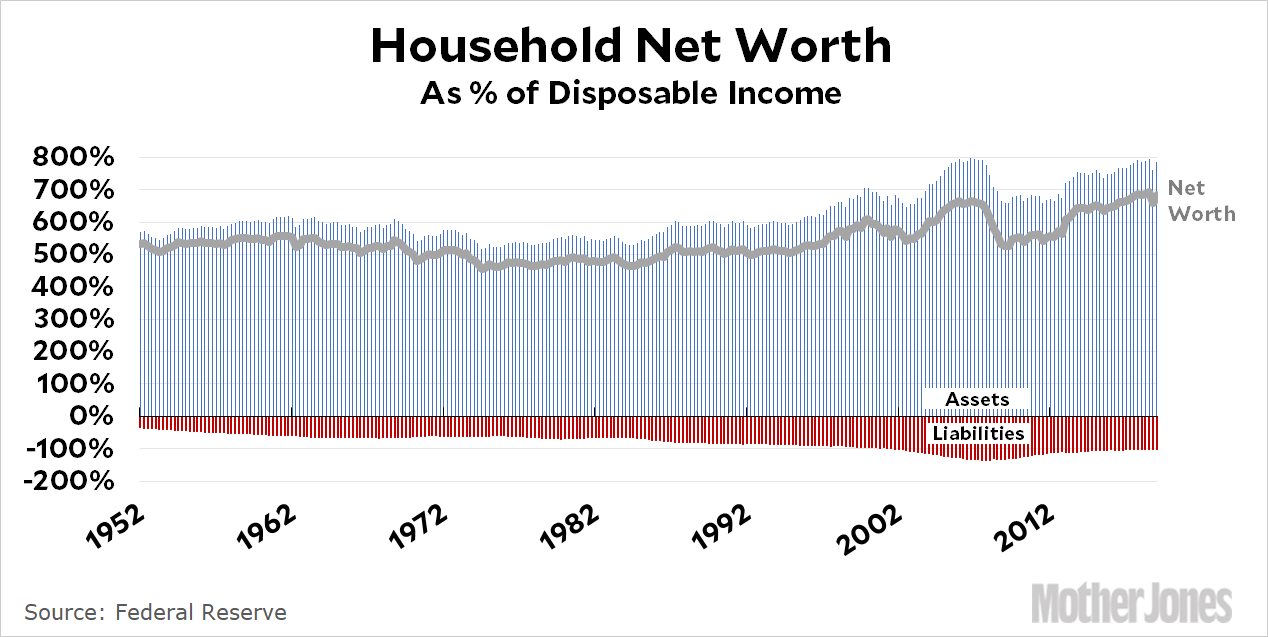
In the LA Times today, Josh McGee makes a commonsense observation about the retirement crisis: “To qualify as a crisis, the situation today should be dramatically different than in past decades.” But there’s compelling evidence that nothing much has changed at all. Sure, we rely more on 401(k) accounts and less on old-school pensions, but the actual amount we save for retirement doesn’t seem to have changed much. The “crisis,” as near as I can tell, is mostly an invention of Wall Street firms, which churn out an endless supply of “studies” with scary headlines but not much in the way of facts on the inside.
This might not matter so much except that it distracts us from some real problems:
Many aspects of our retirement system need to improve, chief among them the large underfunding of Social Security and state and local pension systems. Policymakers and other advocates should also find ways to help more people achieve a secure retirement by enhancing Social Security benefits for low-income workers, improving retirement plan coverage and savings rates, and increasing the availability of lifetime payment options in retirement.
Raising a furor over a nonexistent retirement crisis is diverting attention away from these and other important issues. We need to get beyond the doomsday approach to retirement savings policy so that we can pragmatically tackle the real issues at hand — and leave the next generation of American workers with a more stable retirement system.
I’d add to this that we need to do something about long-term nursing costs for retirees, which can bankrupt middle-class families in less than a year. Personally, I’d expand Medicare to cover it and be done with it. Have any of the Democratic candidates for president proposed this? It’s not only good policy, but also good politics since it would attract the votes of middle-class retirees.
















